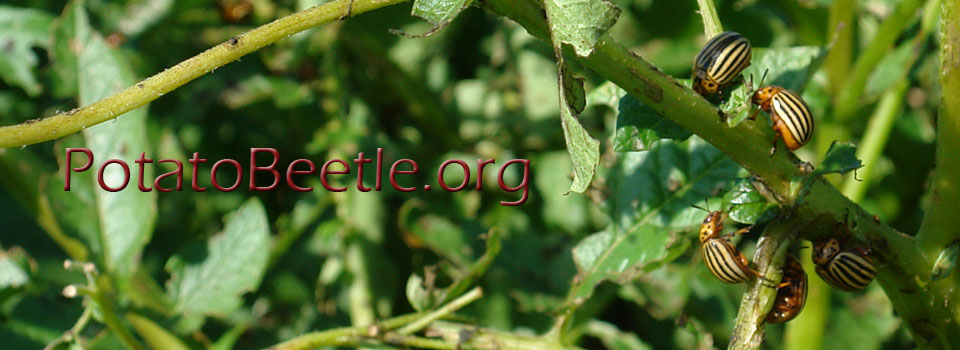Xu Q, Meng Q, Shi J, Deng P, Guo W, Li G. Pestic Biochem Physiol. 2017;143:173-180. doi: 10.1016/j.pestbp.2017.07.010.
To accomplish consistent, long-term, integrated management (IPM) of the Colorado potato beetle, Leptinotarsa decemlineata (Say), research assessing the potential of novel, IPM-compatible insecticides is essential. Novaluron is a potent benzoylurea insecticide. In the present paper, we found that novaluron ingestion by the fourth-instar larvae inhibited foliage consumption, reduced larval fresh weight, and delayed development period, in a dose dependent manner. Most of the resulting larvae fail to pupate, and died at prepupae stage, with larvicidal activity comparable with those of cyhalothrin and spinosad but lower than those of fipronil and abamectin. Moreover, many surviving pupae that fed novaluron failed to emerge as adults, in a dose dependent pattern. Furthermore, feeding of novaluron significantly decreased chitin contents in body carcass (without midgut) and integument specimen, whereas the chitin concentration in the midgut peritrophic matrix was not affected. Furthermore, uridine diphosphate-N-acetylglucosamine-pyrophosphorylase gene (LdUAP1) and chitin synthase Aa (LdChSAa), which were mainly responsible for chitin biosynthesis in ectodermally-derived tissues, were suppressed and activated respectively after novaluron ingestion. Therefore, novaluron is an effective benzoylurea insecticide to L. decemlineata fourth-instar larvae. It inhibited chitin biosynthesis in ectodermally-derived tissues, disrupted ecdysis, impaired pupation and adult emergence, and led to death in juvenile life stages.
